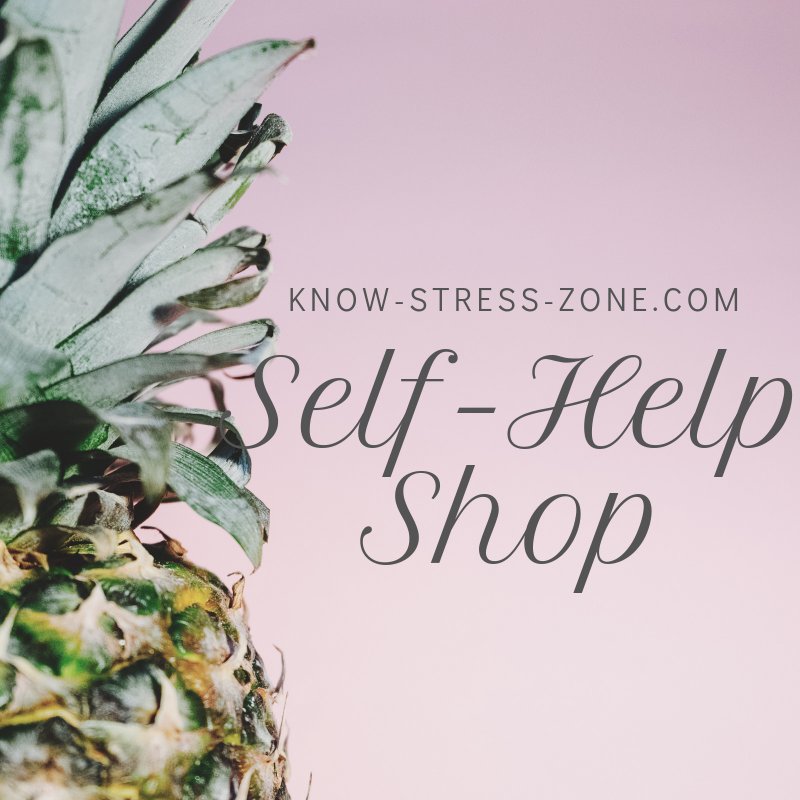Talk to Anyone: Key Ingredients to Becoming a People Person
Talk to anyone: learn the key ingredients to becoming a people person from a person who is not! This is what has worked for me.
Why is it so hard to talk to people? Oddly enough, we’re communicating all the time. But living in the era of direct messages, tweets, emails, and texts, it’s becoming harder and harder to just talk to each other. The sad thing is, conversation is an art that’s needed more than ever because people don't actually want to talk to anyone!
|
If making conversation is intimidating to you, then use these tips to master the art of being able to talk to anyone, anywhere.
Talk to Anyone By Asking Interesting Questions
Rather than asking questions that can be answered with a ‘yes’ or ‘no,’ try asking questions requiring more complicated answers. For example, if you’re in a networking situation, learn something about the people you’re going to meet. Being able to ask specifically about a new project they’re developing leads to better and more interesting answers than a question along the lines of, “What’s new in your company” which is too broad to answer well.
Forget the Weather
The tendency of falling back on the weather as a topic of conversation is both tedious and a death knell to the interaction. Turn weather talks back around by asking a related question but also redirect the conversation at the same time, such as, “You’re right, it’s been pretty hot out. It makes me think of heading somewhere cooler. Tell me, where did you go on the best vacation you’ve ever had?”
Learn the Power of Adding On
This is a pretty simple technique where you take what someone else has said and add something to it, adding a question at the end. This helps keep things rolling even if someone else has stopped the conversation cold with a yes/no question or something about the weather. For example, if you’re asked if you saw the game last night, you might say, “Yes, that play at the end was really something. It reminded me of a time when I went to see them play in person. Tell me, what’s the best game you ever saw?”
Pay Attention to the Details
Become the person who notices when the situation is going south. Be ready to jump in with a question or a new topic when you see people are getting uncomfortable with the situation. For a quick fix, pay a compliment. It puts the focus on someone else entirely and provides a handy distraction.
Being able to talk to anyone will become more natural with practice. Remember, the important thing is to relax, and be your friendly, personable self. By paying attention to the discussion and taking some care in choosing your words, you’ll find yourself having great conversation in no time.
Talk to Anyone:
Sometimes it's okay to talk to strangers
We spend our childhoods being told to never speak to strangers but then discover as we grow up, we need to do just that, repeatedly. Some strangers are more comfortable to talk to, such as shop clerks or servers in restaurants.
Others though, are often more complicated, such as the strangers you meet in social situations. These are the people who have the potential of being your future friends and coworkers. These are the strangers who matter. To some, meeting this type of stranger can be quite intimidating.
How do you get past the initial trepidation and talk to even strangers comfortably?
Talk to Anyone by Throwing Yourself into the Deep End
If you always have someone to fall back on, you’re never going to truly take the plunge. Go to new places alone, so you’re not tempted to stick with who you already know.
Make the First Move
If you’re going to wait around hoping to be noticed, you might have a very long wait. Be bold! Start a conversation! Get up and join the fun rather than waiting to be invited.
Learn the Give and Take of Conversation
Ask questions. Get the ball rolling by discovering new facts about the people you meet. But also, be prepared to talk about yourself (but not excessively). Good conversation should have an ebb and flow. Don’t let it get too heavy in any one direction.
Learn How to Be Friendly
While initiating conversation, know when to back off before you become too aggressive. Not everyone is going to want to talk. If this is the case, let them go. There’s plenty of other people to talk to. Move on to someone else.
Be You
There is nothing more compelling than someone who comes across as genuine. Being authentic is a hundred times better than any role you could ever play. This means being you without pretense. If you’re nervous, it’s okay. You can even say something about it or make it into a joke. You’d be amazed at how many people can identify with these feelings.
Know When – and How – to Quit
If the conversation has died out or the interaction isn’t going well, know how to escape. An “I need” comment is a big help (as in “Excuse me, I need to use the restroom” or “I need to talk to that man over there about something, please excuse me.” Or just simply thank them for the interaction and move on. “It was a pleasure talking to you about Hawaii. Thank you for the conversation.” If you really like the person you’re talking to, get their card, or make plans to get together again before you go.
William Butler Yeats perhaps said it best. “There are no strangers here; only friends you haven’t yet met.”
With that thought in mind, wouldn’t you say it’s time to set forth and make some new friends?
Talk to Anyone...
But keep your boundaries
|
You’ve probably heard the phrase before, but maybe you’re unsure what it means. Just what ARE personal boundaries, and what difference do they make in your life? To understand a personal boundary, you have to understand what a boundary is. Let’s start at the dictionary and go from there:
bound·a·ry (noun) a line that marks the limits of an area; a dividing line. |
While it's an art to be able to talk to anyone, it's also extremely important to never lose yourself in others. That's where setting clear boundaries come in. Most boundaries are pretty easy to see. The world is full of
fences and dividers, clearly marking off space. A personal boundary does the same thing – only on a more invisible
and internal level. Let’s look at this on a little closer.
What are boundaries?
1. A boundary tells you what your responsibility is in a given situation. You already have some boundaries at work or school. These are the parameters of your job or your responsibility as a student and usually are marked out pretty clearly when you took the job or where enrolled. On a personal level, a boundary tells you who you’re responsible for (yourself of course, but you might also be a caregiver). But what about your other responsibilities such as paying your bills, or taking care of your pets?
2. A boundary keeps you safe. Many of these should go without saying – such as abstaining from drinking and driving. But sometimes you have to set some such boundaries for yourself. Such as whether or not it’s healthy to be in a relationship with a certain individual.
3. A boundary tells us who we are. Are you a good person? A bad person? A selfish person? A pious one? Our moral code becomes the boundary that defines us.
4. A boundary clarifies your needs. What things need to be in place in your life for you to be happiest and healthiest? What protects you for overwork or abuse?
5. A boundary defines your relationships. What are the parameters of your relationship? Is that healthy? What is your responsibility to that other person? How are they responsible for you?
With all that, it makes sense that having strong boundaries is a good idea. Especially when you take into consideration these facts:
Boundaries…
…give you a better idea of who you are
…help others to understand your needs
…give guidelines in your relationships
…make for healthy interactions with other people
Perhaps most important of all, they are an integral part of self-care. Be able to talk to anyone but look after yourself, always.
As a side note remember this: Boundaries need to be revisited occasionally and re-evaluated. As we grow and change, our boundaries will change as well.
With all this at stake, it’s no wonder we give boundaries such a lot of attention. Boundaries can mean the difference between a happy and healthy life and a life of drudgery and resentment.
Is it time to learn where to draw the line?
Talk to Anyone:
The #1 key ingredient to being a people person
If you could boil down one key ingredient to being a people person, it would be to listen. This is the one skill that will serve you well. In general, people are too wrapped up in themselves and don’t listen. This is even more systemic with the proliferation of smartphones. You see people with their heads buried in these devices all the time.
When you become a good listener, you will stand out from the crowd and people will take notice of this personal trait. More people will approach you and in many cases, they won’t even know why. It’s not as you announce to the world, “I am a good listener. Come talk to me.” It will happen naturally because you are listening.
Many people mistake listening with giving advice. This is not always a good idea. In fact, unless you are a counselor or you are an expert in the subject of the conversation, you want to avoid advice as much as possible. You don’t want to give people bad advice that if followed, will lead to a difficult situation.
Listening involves hearing what the other person has to say completely and then interpreting what is being said. If you need to respond, you can acknowledge what was said. Some people like to repeat what the other person says after he or she says it. This can be awkward for the person talking, but it is helpful to ensure you understand what was being said.
You can also follow up with words of encouragement or empathy, depending on how the conversation is going. This is different to offering advice. You are letting the other person know you heard what he or she said and respond accordingly.
In most conversations, one person will speak about himself or herself. When the person finishes, the other person will speak about himself or herself. This is a common form of conversation but neither party is truly listening to the other. Take an interest in the other parties and let the conversation be about them. You will have plenty of time in other conversations to make it about you. To further the conversation, ask questions about what was said. This shows you are interested. People love to talk about themselves. Let them do this.
Listening is a skill. Just like anything else, it takes practice. When you become a good listener you will become more of a people person by using this skill to its fullest.
Talk to Anyone:
|


